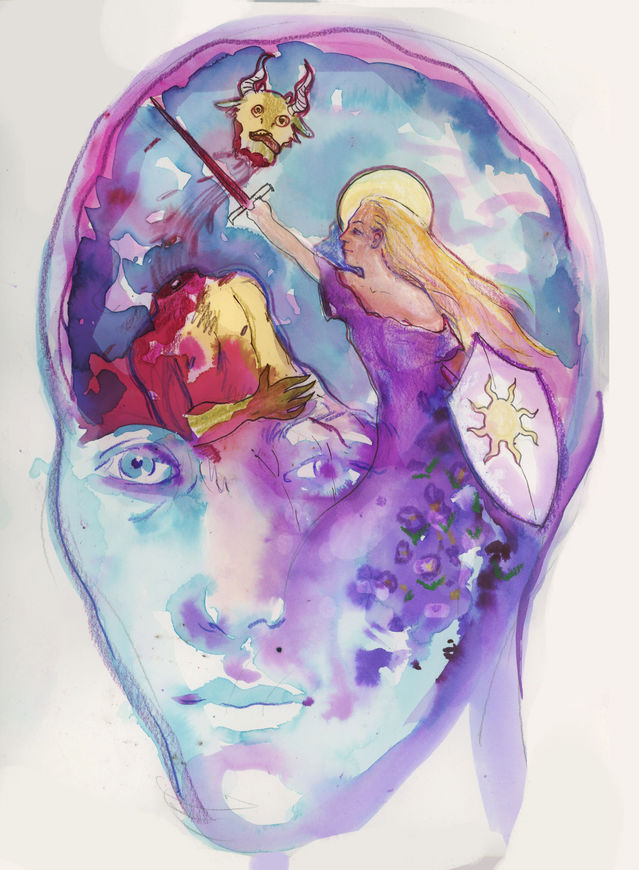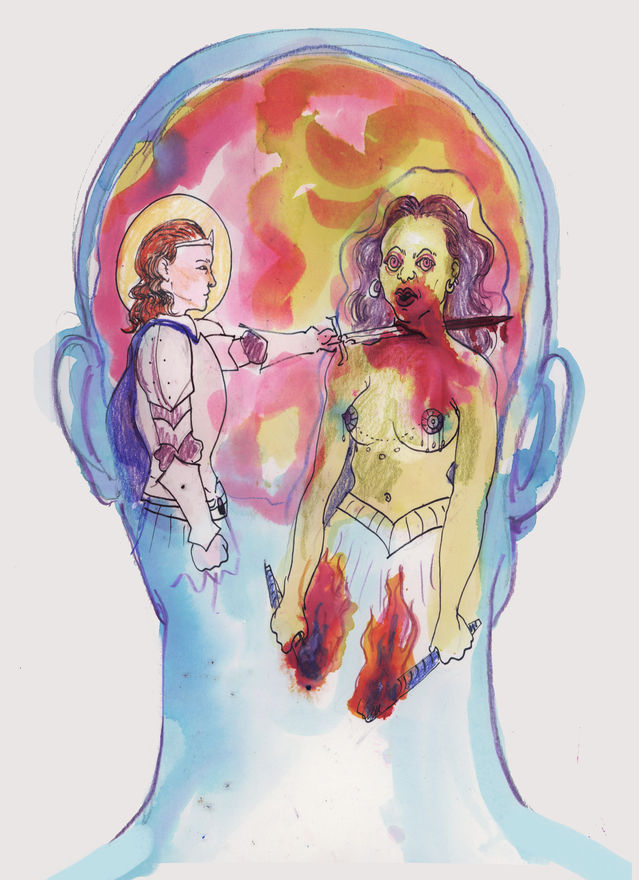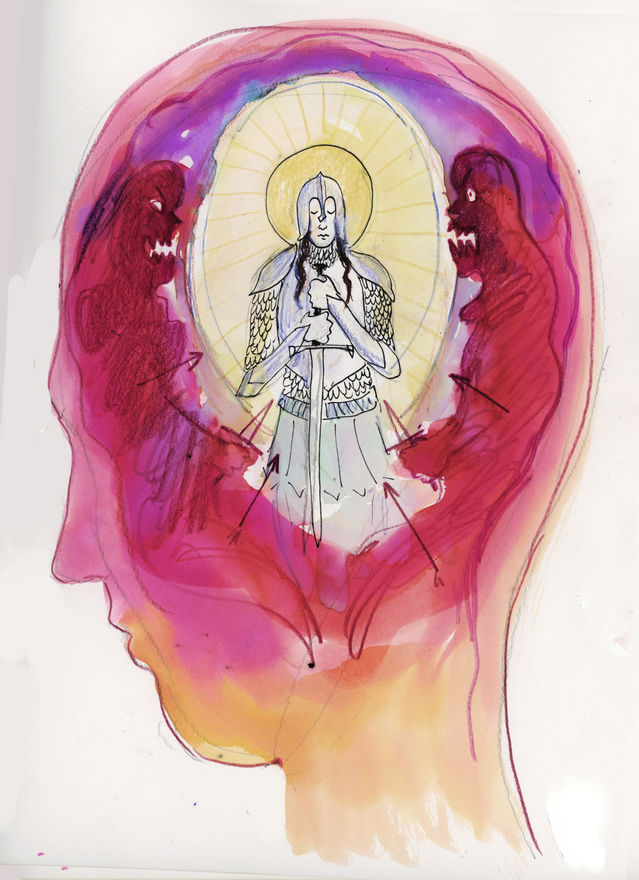Addiction
The Art of Battling Addiction
This is what willpower looks like: 3 interpretations of an epic poem.
Posted January 16, 2020
Uh oh—it’s January 16. This weekend, the experts say, we’ll throw in the towel on our New Year’s resolutions. The fight will be over, and we lost.
Or will it?
Two weeks ago I told you about the Psychomachy. That’s the epic poem about our struggle against cravings, bad habits, and addictions, and the resources we can mobilize to fight them.
It's always been thought that Prudentius, the author, wanted his story illustrated. Aside from some so-so sketches in the Middle Ages, though, no one's ever tried.
Until now.
Lucy Plowe is an artist based in Ithaca, New York. She read the Psychomachy last week and was moved to paint three episodes. Here are her remarkable results and the battles they represent. (You can see more of her work on Instagram at @lucyplowe.)

1. Faith vs. Worship of the Old Gods
In the first episode, Faith squares off against Worship of the Old Gods. Faith represents our trust and hopes in our new ways; the Old Gods represent the old mindset, habits, patterns, and enablers we've resolved to leave behind.
Faith is the first to appear on the field to face the uncertainty of this conflict. Her rough dress is disheveled, her shoulders are bare, her long hair is untrimmed and her arms are uncovered. The glow on her skin is caused by the prospect of sudden and unexpected battle. She burns to enter new contests, she ignores the demands of armor. Faith puts her confidence in her strong heart and arms. She scorns the dangers of hand-to-hand combat and intends to destroy her foe by exhausting him.
But that doesn’t happen. Watch what does:
The first adversary approaches Faith; it is Worship-of-the-Old-Gods (we have no better name) who proposes to accept the challenge of Faith. But Faith strikes the enemy's head and it tumbles in the dirt where it lies, with its be-ribboned brows and the wide mouth that ate the warm red flesh of beasts.
The lesson is clear. If you want to break your bad habits or slay your inner demons, you have to cut them off at the neck. You don’t hide the cigarettes or cookies. You throw them on the ground and stomp on them. That's what Faith does here:
Faith tramples the head and takes particular pains to squeeze the dead grey eyes out of the bloody skull; the monster’s throat is closed and its breath is throttled in its passages until it gasps a hard death.

Chastity vs. Lust
The second duel pits Chastity—or Monogamy, as we might call her—against Lust:
The next person to step out on the grassy field is Chastity, the virgin, shining in armor. Lust, who has come from Sodom, is armed with torches. The vice thrusts a burning pine knot dipped in sulfur and tar into the maiden's eyes. But without fear she strikes the hand with a stone and the blazing torch is knocked away. With only one thrust of her sword, she pierces the throat of the whore and stinking fumes with clots of blood are spat out; the foul breath poisons the nearby air.
Lust’s torches are symbolic. They ignite our ardor, which is great, but can be hard to control. Ardor often leads to poor decisions and regrettable consequences. The fire can easily get out of control, burning us and even those around us.
What’s more, in Prudentius’ view, Lust is good to look at but she’s toxic inside. If you're struggling with cheating or addiction to pornography, keep that thought in mind.

3. Patience vs. Wrath
The third battle is the one I highlighted in my last column. In it, Patience faces Wrath (or Rage, or Explosive Anger). She wins not by swinging a sword but by steeling herself and refusing to take the bait:
When Chastity has retired, Patience comes on to the field. She is standing by the side watching the uproar of that combat: her quiet expression never changes as spears inflict their mortal wounds. Wrath, from, a great distance, spies the easy-tempered virtue and all at once becomes enraged. Baring her teeth in anger and letting flecks of foam fall from her gaping black mouth, the vice darts her bloodshot eyes this way and that and challenges Patience to fight both by brandishing the weapons of combat and by making a speech: she mocks Patience for keeping a place on the side.
Patience won’t be drawn into the fight. She just won't.
Art can do amazing things. Explosive anger, the urge to sleep around or watch porn all day, the urge to give up and go back to old habits or enablers: Prudentius says that with a heroic effort—an epic effort—we can overcome them all. And so, as you struggle to keep your resolutions this weekend, Lucy’s artwork can provide a bit of inspiration, and a reminder, that we can win the fight.


